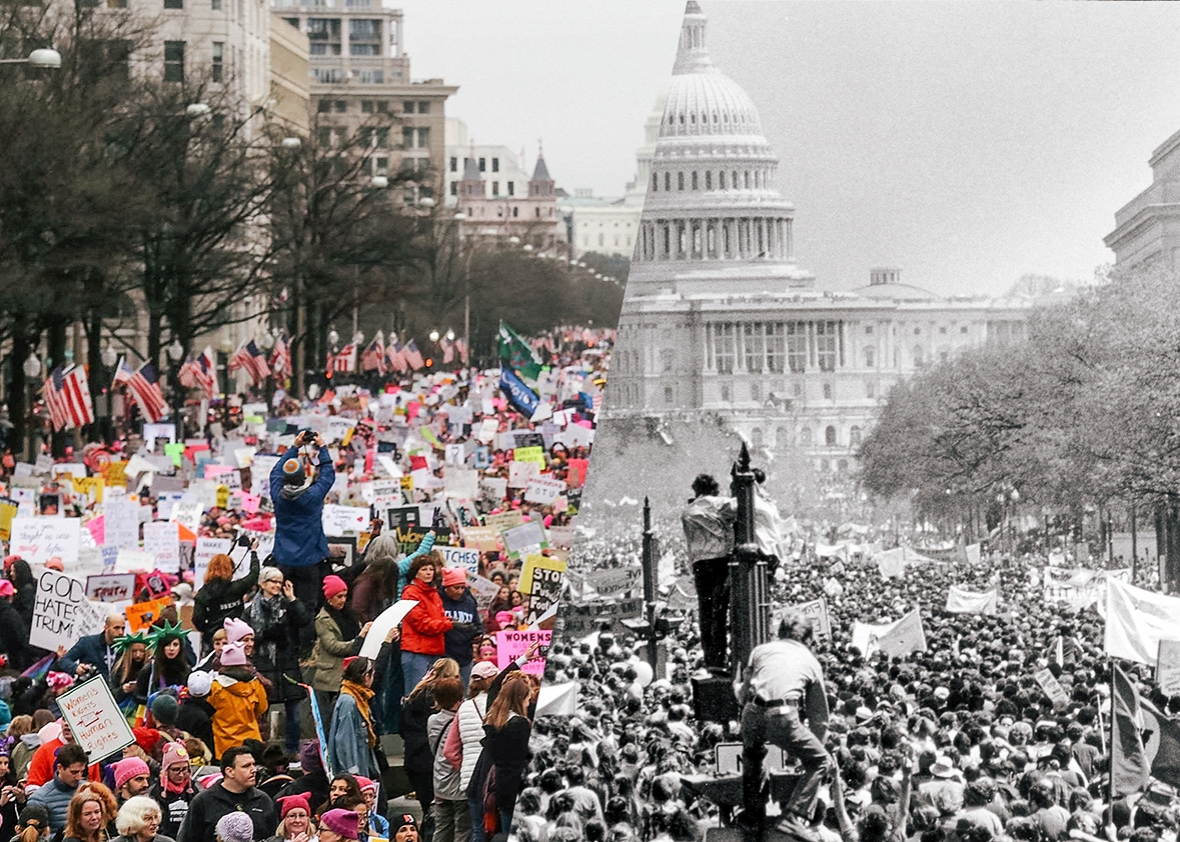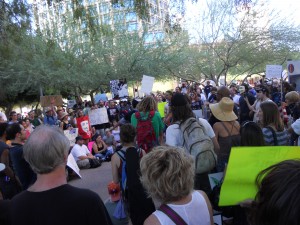
The Vietnam War is closer to home for me than it is for most twenty-somethings in 2018, probably because our schools tend to gloss or ignore the conflict. What I remember of my American history classes is that the narrative came to a screeching halt after World War II. Nobody wanted to wade through the moral quagmires of Korea and Vietnam when it was so much easier to end on the high note of Allied triumph over the Nazis, with the unprecedented prosperity of the 1950s on the horizon. I’m sure this isn’t a universal experience, but from what I’ve learned in conversation with my peers, it’s a common one.
This war is entrenched in my family history—my grandparents were in the Foreign Service, my mother and her sister raised in Asia while their father worked at the U. S. Embassy in Saigon—so it’s something which has preoccupied, obsessed, and haunted me. I’ve read my grandfather’s letters from Tet. I’ve heard my mother describe waiting for her father to come home, while her mother tried to hide her fear that perhaps he never would. What tormented me most as I got older was how little I understood the conflict. So I did what I do best: research. I devoured books and newspapers, letters and interviews, movies and documentaries, music and memoirs and museum exhibits. The experience was unique in my archival pursuits in that the more I read and the more I learned, the more confused I became. But there’s some strange comfort in that, because that is the common thread running through so many different narratives of Vietnam: confusion and frustration of such agonizing magnitude that words simply cannot do it justice. But, as a writer, I am trying.
It is difficult to explain (especially to people like me who never talked about ’Nam in their history classes but unlike me had no reason to wonder about it) why I spend my scant spare time immersed in something so deeply, indefinitely disturbing. It is difficult to explain that this is something I feel tyrannically compelled to talk about, especially right now. The political climate of the United States is perhaps the most volatile it has been since the Vietnam War—which was ten months into its deadliest year exactly fifty years ago. Daily, anniversaries of deaths and battles and marches—at home and abroad—go by. On October 21, 2017, I walked the same route tens of thousands of anti-war protestors followed to the Pentagon in 1967. In the past two years, I’ve attended protests of my own, dragged out into the streets by a moral obligation to object to what I cannot countenance in this country of my birth: rampant gun violence, virulent misogyny, unchecked corruption, tax cuts for those already obscenely rich, the political legitimization of white supremacy. Since returning to the States from London immediately after the 2016 election, I have lived in a state of constant anger, fear, and confusion. And while I will never really know what it was like for the hundreds of thousands of men who fought for their lives or lost them in Vietnam, I am beginning to understand what it was like to live in a domestic American warzone, where families and friendships and illusions shattered under the pressure of such insurmountable conflict. I feel like I can never quite relax. Random crying jags while reading the Sunday paper have become the norm. Signs lettered with slogans are piled up in my coat closet. Every time I’m off to a protest I dress for a riot, a lesson learned from history and current events alike. Wear sneakers in case you have to run, tie a bandana around your neck to breathe through in case you get tear-gassed, keep your ID and cash in your pocket in case you’re arrested, and don’t forget to call your folks before you go and let you know you love them—just in case. But worse than anything, I think, is the feeling of desperate breathless exhaustion, like you’ve been screaming your lungs out for two straight years and nobody can hear you—or if they can, they’re not listening.
So. Where does that leave you? What do you do?
As historians are fond of pointing out, the Sixties witnessed socio-political unrest unseen since the Civil War. The Sixties also saw some of the most remarkable artistic achievement of the 20th century, and that is hardly a coincidence. Without the cultural revolution which was undeniably intensified by the Vietnam War, we would be bereft of a rich artistic groundswell which gave us freeform radio and music videos, Slouching Towards Bethlehem and Slaughterhouse-Five, Bob Dylan and the Doors. Art has often been rebellious, sometimes revolutionary, and never apolitical. It has held a mirror up to nature, since Shakespeare coined the phrase (and long before). Art is one of the most powerful forms of protest we have, which is why artists are usually among the first to be exiled, arrested, punished, and persecuted when totalitarianism rears its ugly head.
For me, art is also a way to make some sense of senseless things. For the last year or so I have been working on a novel which follows the staff of a college radio station from 1967 to ’69. They are students and activists, lovers and fighters, poets and potheads, disc jockeys and GIs and draft dodgers, all dragged kicking and screaming into the chaos and turmoil of Vietnam. In their company I have marched on the Pentagon, watched the Tet Offensive unfold on television, felt crippling fear for a friend who just lost the draft lottery. I’ve also shared their wild delight at the vibrant life of the counterculture, their exhilaration at hearing “Purple Haze” for the first time and knowing it was something extraordinary, their contradictory conviction that peace is worth fighting for, their noble and naïve belief that they can arrest the forward momentum of a powerful political machine if only they, as Mario Savio so memorably put it in the days of Berkeley Free Speech, are brave enough to throw their bodies on the gears.
It’s not an easy story to tell when you know how it ends. The war dragged on until 1975, leaving almost 60,000 Americans dead—including four students killed at Kent State by the National Guard—and many more Vietnamese. It’s not an easy story to tell fifty years later when it couldn’t be plainer how little we’ve learned from the ugly parts of our history that nobody really wants to talk about. But that, of course, is exactly why I feel compelled to tell it.
Last week I marched with hundreds of other people from the U. S. Capitol to the steps of the Supreme Court to protest the appointment of Brett Kavanaugh to the Supreme Court. In light of Dr. Blasey-Ford’s testimony that Kavanaugh sexually assaulted her at a high-school party with his hand clapped over her mouth, the analogy that we’re all screaming and no one can hear has become painfully, horribly real. Doubt eats away at me daily, and I can’t help wondering if all our efforts, all our marches and protests and outrage, will ultimately amount to nothing.
As I stood by the Capitol Reflecting Pool under gray skies and drizzling rain, an elegant older woman passed by me—dressed in black, with short gray hair and a face that was familiar, though I’d never met her before. When I realized she really was Joan Baez and not just someone who resembled her I thought, My God, she must be so tired of this. But then I felt a strange, unexpected stab of hope and realized how grateful I am for someone like her, someone who hasn’t given up fighting inequality and violence and war for fifty years, no matter how tired she is. Later I saw her standing under a tree (surprisingly not mobbed by people; perhaps other marchers my age and younger don’t know who she is) and managed to mutter a strangled, inadequate “Thank you.” Because I needed the reminder that apathy is not an option. Because now I can return to the story I’m trying to tell, a story of then and now, art and outrage, small hope and long odds that we’ll ever learn from our mistakes. Because no matter how small the hope or how long the odds, I refuse to fall silent. Of course, I’m no Joan Baez. I’ve only been marching around in the rain for two years and I’m already exhausted. But I will keep marching, and I will keep screaming, and I will keep writing, because just maybe someone will hear me, and just maybe, someday, it will matter.
